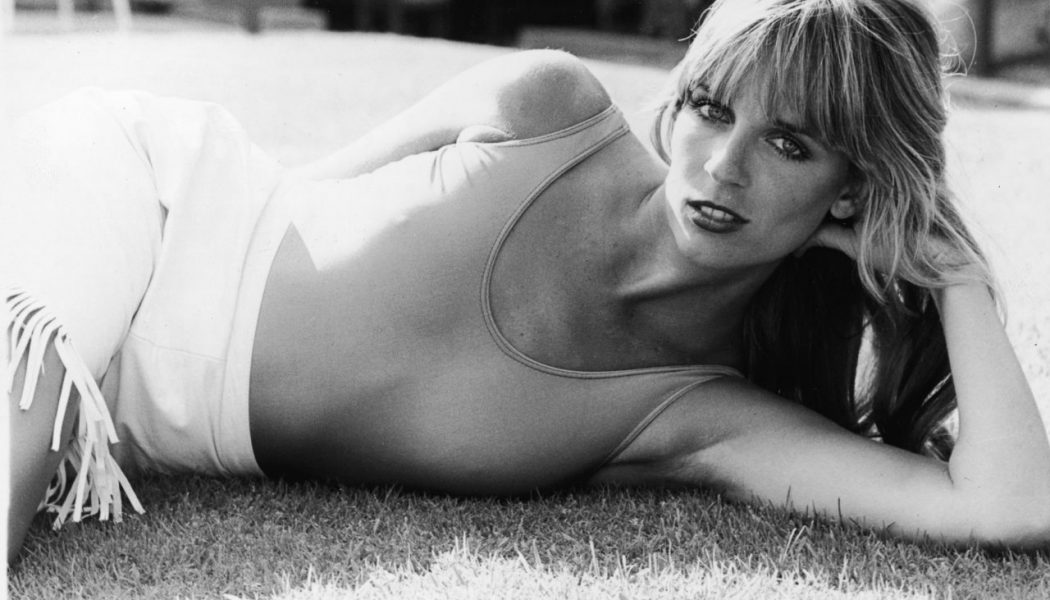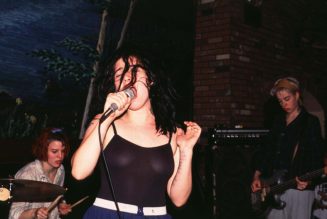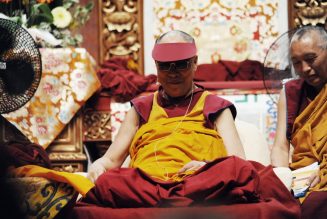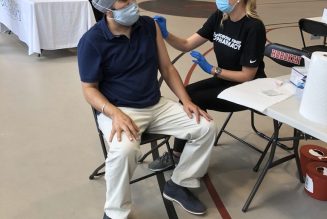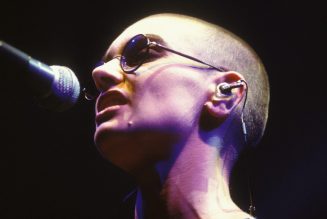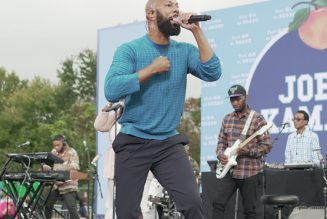Long before the Taylor Swifts, Miranda Lamberts and Brandi Carliles, Carlene Carter set the standard for today’s independent, self-empowered, and irrepressible female country artists—and she did so when country music, as Barbara Mandrell sang in her 1981 Country Music Association Single of the Year, “wasn’t cool.”
Three years earlier, the daughter of 1950s and ’60s country crooner/honky-tonker Carl Smith and the Carter Family’s June Carter Cash — and stepdaughter of Johnny Cash — released her self-titled debut album, on Warner Bros. The label had sagely sent her off to London with the idea of recording country music with a rock band.
But it wasn’t just any rock band: Carlene Carter was recorded with New Wave singer-songwriter Graham Parker’s cutting-edge The Rumour, and produced by its keyboardist Bob Andrews and guitarist Brinsley Schwarz. Parker sang background, as did Nick Lowe—who also played bass. Lowe was also the in-house producer of the legendary Stiff Records, for which he produced Elvis Costello’s landmark first albums, as well as pioneering punk group The Damned’s debut album, Damned Damned Damned.
Lowe married Carter the following year, and adopted her daughter Tiffany.
“I wanted to be the rockingest girl in country music,” Carter says, and she was well on her way—while never forsaking her treasured roots. Indeed, she’s always been both descendant of the immortal Carter Family, and guardian of its heritage: Her mother was the daughter of Maybelle Carter (forever known as “Mother Maybelle”), an original member of the Carter Family trio that formed in 1927.
When Carlene Carter first sang on stage, in 1971 — as “a full-grown person, not as a little novelty kid or straight-man for my mom’s comedy routine,” as she puts it — it was with Johnny Cash’s touring show, but strictly the Carter Family. “It was at a Rex Humbard evangelical revival,” she recalls. “John and Mom and the Carter Sisters had me come on stage between Anita and Helen for [Carter Family classic] ‘Will the Circle Be Unbroken,’ and my knees were shaking so bad because I was so excited.”
She was 16 then and soon “got the bug” about songwriting.
“Mom said, ‘You sound good and look cute and people will like you,’ and then she said, so matter-of-factly, ‘so if you can write one song like “Ring of Fire”….’” The Johnny Cash 1963 hit had been co-written by June Carter Cash prior to their marriage.
“That experience, and guitar pulls—where you’d be swapping songs while sitting next to Roy Orbison or Kris Kristofferson, or Mickey Newbury—inspired me, and got my little songs heard. And then the biggest thing happened: I met Emmylou Harris and Susanna Clark and Rodney Crowell.”
Rodney and Emmylou’s manager took her to Warner Bros., where she found that Europe was “way more open to my brand of country—country with an edge and attitude. I wanted to play ‘rocky’ music and have it be country at the same time.”
She also famously stated, in 1979 while introducing a song about suburban spouse-swapping (“Swap-Meat Rag,” from her second album Two Sides to Every Woman) at New York’s Bottom Line, that “if that don’t put the ‘cunt’ back in country, I don’t know what does.” Too bad she didn’t know that both her mother and Johnny Cash were in the audience.
“It made such a splash, and people thought I said it for shock value,” she recalls. “But it was a word that was never in my vocabulary — but I’d lived in England, where it was kind of a term of endearment. I told Mama I was so sorry I said that word, and in pure June fashion, she said, ‘What word?’”
“Tennessee is very conservative,” acknowledges Carter, and Nashville alone has over 700 churches and is America’s religious printing and publishing capital — the so-called “buckle on the Bible Belt.” But today Music City is “a little blue dot in a big red state.”
“I have family members who were behind Trump — which I don’t understand,” she adds. “I don’t know what Mom would think now, but she and John, if they were invited to the White House, they’d go out of respect for the office. Her ideas were more Democratic, and left an imprint on my life for being very open and loving.”
Johnny Cash manifested Democratic ideals in his fervent support for disadvantaged people. But where he was the stolid, quiet type, Carlene exuded an exuberant and unrestrained spirit on and off stage. She received more press coverage for the C-word remark “than any album—and it didn’t help sales at all!”
Meanwhile, Lowe also produced her acclaimed third album Musical Shapes (1980) with musicians including Dave Edmunds and Rockpile. But after he co-produced her next album, Blue Nun in 1981, featuring Squeeze’s Glenn Tilbrook and Paul Carrack, she moved to Epic Records for the one-shot C’est C Bon (1983), then took a break from the studio, starring in the London production of Broadway’s country musical Pump Boys and Dinettes (with Kiki Dee and Manfred Mann’s Paul Jones). She toured with the Carter Family after returning stateside.
“The Epic album was kind of electronic, and I knew I had to go back to my roots,” she recalls. “So I went back to Nashville, but I knew that I couldn’t come back with the same sound—which was great—but a different sound of my own. But I’ve always been like that, and I’m forever grateful that Warner Bros. trusted me and gave me freedom: I knew I could give them a record that might actually have a radio hit, and pushed hard for a video, since I knew video would be big in country—and that’s what sold me.”
Carter’s sixth—and biggest—album, I Fell in Love, was produced by Tom Petty & the Heartbreakers’ bassist Howie Epstein, with whom Carlene became romantically involved, with her marriage to Lowe ending in 1990.
The record, released in 1990 on Reprise Records, was recorded in Los Angeles “primarily with the L.A. country crowd, which was edgier, and also a rock bunch. But I didn’t change that much: I could never sell anything but me. Every time I ever strayed from that at all, it was a catastrophe!”
I Fell in Love yielded the title track hit single, which was accompanied by a peppy video that successfully presented her as the vivacious, fun-loving, rockingest girl in country music. She had been informed by label brass that 80% of country music sales are by male artists, and that women buyers favored those artists over their female counterparts.
“I figured, there’s got to be a way to inject joy into country records by women for women who want to dance and have a good time with fun music that’s rocking and lighthearted,” Carter continues. “I managed to be there right at the beginning when women artists started selling records in decent numbers. I didn’t sell platinum, but I was a little ahead of my time, and did sell 350 – 400 thousand — which was respectable — and my records went gold everywhere but America.”
In the ’90s Carlene was certainly “the high energy, rockingest country chick in the universe,” — her words —not to mention “the token female opening act” of such arena country artists as Merle Haggard, Clint Black, Dwight Yoakam and Hank Williams, Jr.
“I was out there all the time, jumping from one to another for six or seven years — and then, Burnoutville! I started doing drugs and taking care of Howie.”
As she admits, she “was always a partier,” though she never injected drugs or became nonfunctional. But she admittedly “got lost,” especially in 2003, when Howie, a heroin user, died of drug-related causes.
“It took me another year to get my shit back together,” she says, but she succeeded: “It’s been 17 years since I did drugs, and almost seven years of not drinking. If I see a drug now, I’d probably have a heart attack!”
But Carlene also “untangled” herself, she says, from decades of twisted relationships with men, and returned to Tennessee, single, in 2018 after years of living in Southern California. She now lives near where she grew up, and has again returned to her roots musically.
“I am a Carter Girl!” she declares, reinforced by her last solo album, Carter Girl (2014), which contained songs written by members of the Carter Family, herself included, dating back to the original Carter Family trio.
She also played her mom — who she now naturally resembles — in a musical play, Wildwood Flowers—The June Carter Story, and after releasing an album with John Mellencamp (Sad Clowns & Hillbillies, in 2017), was a big part of The Carter Family—Across Generations, a remarkable concept album that brought together five generations of Carter Family members in perpetuating the songs of “The First Family of Country Music.” They’re understandably considered the most influential group in country music history.
“I got to play my grandma’s guitar parts, which was a huge thing for me!” says Carlene, who was heavily influenced by Mother Maybelle’s “Carter Scratch” playing style. “I don’t play identical, but with all my heart in the way she showed me.”
And she recently played Mother Maybelle’s 1928 Gibson L-5 guitar at the Country Music Hall of Fame and Museum, as part of a program showcasing historic instruments. “It was one of the most amazing experiences of my life!” she says.
But it’s “the whole idea of us all coming together” that brings Carlene Carter’s unique career around full circle.
“We’re still very much here,” she says of the Carter Family, which now extends down to daughter Tiffany Anastasia Lowe’s generation, “and the music is still very much here. My job is to keep being creative and adding to the wonderful heritage I inherited as long as we can.”
Looking back at it all, she says, “I think I brought a certain amount of fun and non-threatening sexiness to women who might like country women singers.” And of her lasting notoriety, she concludes, “I stuck to my guns, and now I say, ‘I put the ‘country’ back in country!’”
